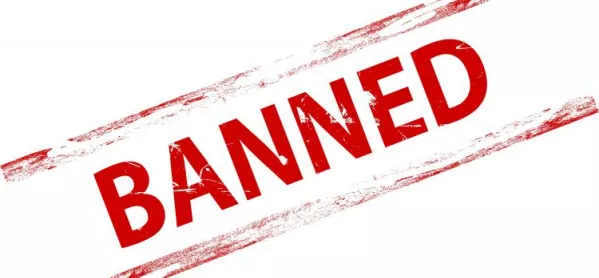- Home
- Banned: Headteacher who doctored Sats papers
Banned: Headteacher who doctored Sats papers

A headteacher who showed “no regret or remorse” after doctoring her pupils’ Sats papers has been banned from the profession for a minimum of eight years.
Jane Scown, the former headteacher at Indian Queens Community Primary School and Nursery in Cornwall, was found by a professional conduct panel of the Teaching Regulation Agency (TRA) to have amended her pupils’ answers to KS2 Sats papers in 2017.
The panel found that Mrs Scown’s actions had a “detrimental impact” on the pupils in question, as her interference may have led to them “being placed in classes [at secondary school] that were not commensurate with their actual level of ability”.
Banned: Teacher who ‘showed up drunk’ after night out
Misconduct: Teachers spared ban over GCSE malpractice
Investigation: Complaints from public about teachers soar
The misconduct took place between 8 May and 11 May 2017, while Mrs Scown was headteacher.
The panel heard that, after the school’s Year 6 pupils sat their Sats assessments, Mrs Scown assumed responsibility for the papers prior to their being checked, sealed and collected.
One former colleague (Witness D) said that, as far as she could recall, there was never anyone with Mrs Scown in her office when the papers were provided to her.
It is understood that there was a period of time when the scripts were left in the “sole custody” of the headteacher.
Another former colleague (Witness E) said she later joined Mrs Scown to check and package the papers, before locking them away prior to their collection by Parcelforce.
She added that, on one of the days during this assessment week, she notified Mrs Scown that a Parcelforce driver had arrived - only to be told to send the driver away on the basis that “the papers were not ready”.
It was later confirmed that on 9 May there was no collection of the day’s Sats assessments, in contrast to the other days that week.
‘An awful year for the school’
The panel said: “It was clear, and the panel found as a matter of fact, that, at some point in the examination process, amendments to Sats scripts were made.”
A “prolonged investigation” by the Standards and Testing Agency (STA) ensued, described as “a difficult period of uncertainty” and “an awful year” for the school.
In one case, in relation to the English grammar, punctuation and spelling paper 2, the STA identified “26 matches (of push through [...] of amendments and corresponding indentations)”. The panel was also provided with examples of pupils’ work which had been amended.
Based on the available evidence, including the fact that Mrs Scown appeared to be the only person left alone with the papers, the panel concluded that the former headteacher was responsible for the changes made to the pupils’ scripts.
It described her behaviour as “calculated and motivated” and “extremely concerning”, adding that, as an experienced headteacher, she “ought to have known better”.
Concluding its findings, the panel said that Mrs Scown “sought to benefit from her actions”.
“Had her misconduct not been uncovered, the school would have achieved better results than some of the pupils deserved and a higher national ranking as a consequence,” it said.
“The pupils in question were adversely affected as they did not receive an overall standard for English reading, English grammar, punctuation and spelling or mathematics.
“However, the panel considered that the pupils would have been affected even if Mrs Scown’s actions had not been discovered. Decisions would have been made, and likely were made, when they transferred to secondary school, as to the levels of some of those pupils.
“This would have been in circumstances where their results did not reflect their true abilities in these subjects and may have led to them being placed in classes that were not commensurate with their actual level of ability.
“This was an act of serious dishonesty where Mrs Scown had flagrantly disregarded statutory guidance.”
Banned for a minimum of eight years
The panel noted that, while Mrs Scown’s former colleagues had given evidence of some “positive aspects of her practice”, they gave the overall impression that she had “various shortcomings” as a leader.
It added: “She was variously described as someone who did not take kindly to being challenged and who was very dominant and controlling.”
Although Mrs Scown had never admitted her actions, she had specified that there was no need for anyone else at the school to be subject to an investigation.
The panel agreed that Mrs Scown should be banned from the profession indefinitely, with the opportunity to apply for a review after eight years.
“Mrs Scown’s behaviour was extremely concerning and at the serious end of the spectrum. However, the panel had in mind the fact that prohibition orders should not be given in order to be punitive,” it said.
“Mrs Scown had undoubtedly been punished for her actions. The panel’s findings would undoubtedly affect her professional reputation and future employment prospects. Her conduct also took place in the wider context of an otherwise long and unblemished career.
“For these reasons, the panel decided that it would be proportionate, in all the circumstances, for the prohibition order to be recommended with provisions for a review period.”
Its recommendations were upheld by the Department for Education’s decision-maker Alan Meyrick.
Keep reading for just £1 per month
You've reached your limit of free articles this month. Subscribe for £1 per month for three months and get:
- Unlimited access to all Tes magazine content
- Exclusive subscriber-only stories
- Award-winning email newsletters



